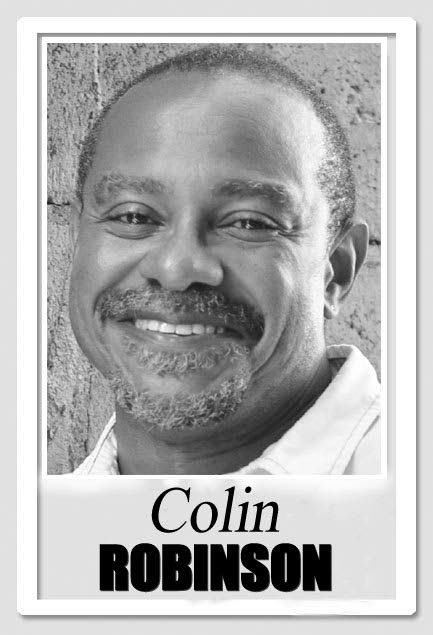Judging this Carnival, by memory

I long stopped studying Panorama results. Panels of judges routinely separating steelbands by two, one, half-points, say score differentials are within the margin of error. It matters less to me who wins than the keenness and joy of the competition.
From the perpetual clumsiness with which we’ve failed over the years to bring management to Carnival’s disorder, a few certainties have evolved: The bottleneck of mas bands trying to access the Savannah stage.
Indeed, all of our premier festival’s artists endure the penance of dust and dew of the drag to chirrip, chirrip reach its mainstage. The patronage system (mentioned last column) for allocating the best seats at shows, which will forever forestall how Carnival’s industry generates revenue. Our urge, on the contrary, to make everything Carnival into a judged competition over state prize money, which undermines self-reliance, and dampens not just inventiveness, but cultural autonomy. And, of course, that pan events start late and drag on interminably.
Pan Trinbago’s reformer president is shaking up this framework, stretching the pan calendar beyond the Carnival window, making North Trinidad bands share the burden of travelling to compete – and promising a 2020 pan final ending before midnight. Whatever the outcome, boldness is so desperately needed from Carnival “special interest group” leaders.
And, despite the familiar lawsuits over judging (which prompted me to wonder whether CJ Archie ought to create a Carnival court), healthy competition is one of the great successes of pan in Carnival; and it drives quality. But I insist Panorama is not a European music festival. I welcome the end of the All Stars-Phase II see-saw, but noted something interesting this year. Asked who’d win last night’s competition, more than one friend backed Despers’ More Sokah arrangement, with the identical caveat: “I not a musician, eh. I just know de ting sweet.” That ineffability ought to be key in who’s crowned pan champs – it’s what we’ll remember about an arrangement.
Kaiso competition this year, conversely, seems the worst in memory. Remarkably, though, in stark contrast to Soca Monarch finals – an all-male affair – Calypso Monarch semifinal and final rounds – perhaps historically – featured equal numbers of men and women.
Singing eminently forgettable songs.
It’s more the state of the competition than of calypso. Cringing at the mediocrity in radio broadcasts of tent openings, I nonetheless determined to endure Kaiso House with two Trinb friends who’d never had the remarkable cultural experience that is the calypso tent. Above, I ought to have cited calypso tents over pan as interminable shows – worse for the songs’ weakness and patrons’ perplexing insistence on encores for half the performers. Running time was true to form, most calypsos insipid; but, a 50-member OWTU contingent and judges’ night made the tent ram-cram, the audience with five members under 40.
They applauded anything lamenting social decay or wishing for better.
Second-to-last before 11.15 pm’s intermission, came the night’s “first memorable tune,” one friend leaned over and whispered – Mistah Shak’s D’Mas. Following, Chromatics commanded the house in raucous finger-wagging about the Outside Man’s prohibition to “come inside.”
Neither headliner would end up in Guaracara Park’s semifinal. Nor did others of the most encored calypsos in 2020 tents, like Makeda Darius’s Not Martin.
I’d celebrated re-emancipation of calypso finals from the unnecessary touristiness of Dimanche Gras, and return to a two-song format, as an opportunity to attend and savour the best of this year’s calypso in one sitting.
I didn’t. It had too much Kaiso #2 – semifinalist Mark John’s memorable punchline.
I’ll remember little about 2020’s competition. Heather McIntosh’s account of the stain on Claude’s bishopric from Trinity Cathedral’s controversial fashion show had become indelible way before the competition.
Far less memorable is the irony of Duane O’Connor’s treatment, himself desecrating religious vestments and instruments. Singing Sonia trotting out racial stereotypes of Chinese, dressed as a Japanese geisha, I long to forget. The Mighty Conflict of Interest making the final despite appearing to buss and recover by repeating his forgettable first verse, will linger. Brian London sang “This is not a land where people study all them things like right and wrong.”
All were finalists. Wit was largely punished. Karene Asche sang winners never quit. Yawn!
I’ll remember this winning line from Cro Cro’s tribalist People’s Choice calypso: “You go hear the helicopter passing, she coming right back to thief again”. Less striking than her lyrics was Tameika Darius’s parliamentary imagination of Brigid as pierrot, Keith as midnight robber, and Barry as baby doll.
This year’s odd rule that calypsonians provide both songs’ full lyrics beforehand, and not deviate from them, is about libel concerns, TUCO’s Brother Resistance stuttered. Seems more like censorship by the government defending the Sedition Act Sparrow sang on. Acknowledging composers is what I would welcome: did Christophe Grant sell the top three tunes?
Let me repeat my one simple judging rule for calypso; clearer and far more operational than finding sweetness in pan:
Is it memorable?
Musically? Lyrically? Its performance? If I’m not still humming it, smiling or nodding, by May, it isn’t a Big Yard tune.



Comments
"Judging this Carnival, by memory"